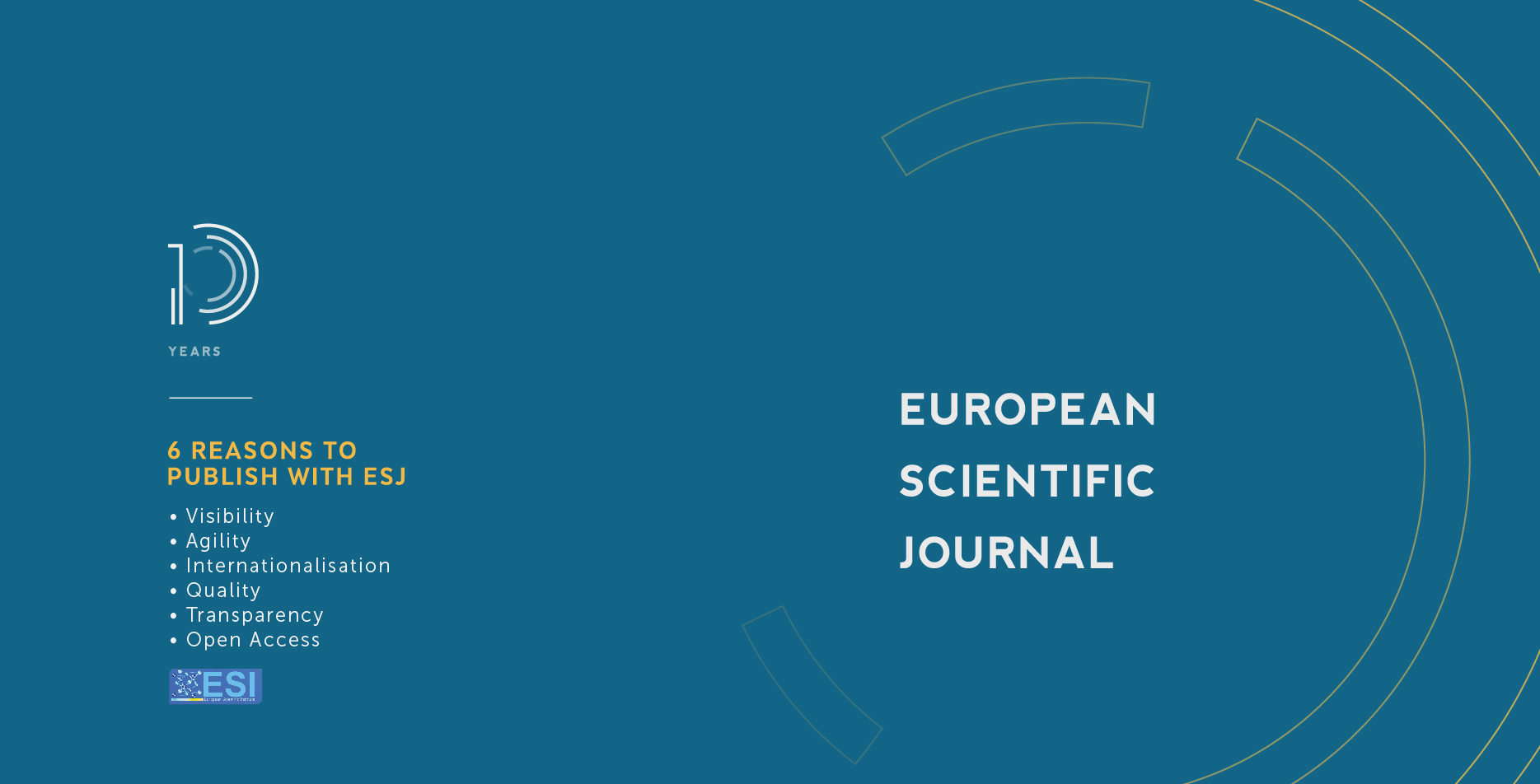Proposing a New Managerial Model for Digital Transformation
Abstract
Digital transformation is a gateway to innovation and new models of organization, operations, and business models. The quick response of managers and leaders is becoming the key to successful digital transformation, followed by strategic flexibility according to data testing results. These results highlight the importance of agile leadership in today’s changing organizational environment (Fachrunnisa et al., (2020). Hence why it is imperative to take into consideration all employees’ perceptions of management to avoid resistance to change. Thus, in this research paper, we analyze the current managerial environment to better guide digital transformation through a survey destined for both managers and employees, assessing the current situation of organizational management from a diversity of perspectives. We then propose a new digital transformation managerial model based on significant correlations between the models’ variables using the Chi-squared test.
Downloads
PlumX Statistics
References
2. Azarov, N. J., Jaroshenko, F. A., Bushuyev, S. D. (2012), Innovation principals for managing development program, Kyiv, Ukraine, Sammin Kniga, 528 p.
3. Bhardwaj, S., & Srinivasan, S. (2018) DE-STRUCTURING THE ORGANIZATION PROCESSES AND STRUCTURES IN THE FACE OF CHANGES. ENTERPRISES AND ECONOMIES IN THE FACE OF CONTEMPORARY CHALLENGES, 135.
4. Bushuyeva, N., Bushuiev, D., & Bushuieva, V. (2019). Agile leadership of managing innovation projects. Innovative Technologies and Scientific Solutions for Industries, (4 (10)), 77-84.
5. Callaway, S. K., Celuch, K., & Murphy, G. B. (2009). Strategic flexibility and SMEs: The role of information technology for managing internal and external relations. New England Journal of Entrepreneurship, 12(1), 9–17.
6. Chryssolouris, G., Dimitris, M., Dimitris, M.: Manufacturing systems: skills and competencies for the future. Procedia CIRP 7, 17–24 (2013).
7. Cruz, M. B. da (1995). Teorias sociológicas. Os fundadores e os clássicos [Sociological theories. The founders and the classics]. Lisboa: Fundaç ão Calouste Gulbenkian.
8. Derridj, R., & Amiar, L. (2020). La digitalisation au sein du secteur bancaire : entre causes et conséquences cas d’ABC Bank.
9. Doz, Y. L., & Kosonen, M. (2010). Embedding strategic agility: A leadership agenda for accelerating business model renewal. Long Range Planning, 43(2–3), 370–382.
10. Ducrey, V., Vivier, E. (2019). Le guide de la transformation digitale. Eyrolles.
11. Engholm, A. A MODEL OF AGILE LEADERSHIP COMPETENCIES AND SKILLS: A CASE STUDY OF AN AGILE TRANSFORMATION.
12. Fachrunnisa, O., Adhiatma, A., Lukman, N., & Ab Majid, M. N. (2020). Towards SMEs’ digital transformation: The role of agile leadership and strategic flexibility. Journal of Small Business Strategy, 30(3), 65-85.
13. Gardner, W., Avolio, B., & Walumbwa, F. (2005). Authentic leadership theory & practice. Elsevier Science.
14. Gill, R. (2002). Change management--or change leadership?. Journal of change management, 3(4), 307-318.
15. Grundy, T. (1993) Managing Strategic Change (London: Kogan Page).
16. Hartmann, E.A., Bovenschulte, M.: Skills needs analysis for “industry 4.0” based on roadmaps for smart systems. In: Using Technology Foresights for Identifying Future Skills Needs. Global Workshop Proceedings, Moskow, SKOLKOVO Moscow School of Management &International Labour Organization, pp. 24–36 (2013)
17. Janićijević, N. (2017). Organizational models as configurations of structure, culture, leadership, control, and change strategy. economic annals, 62(213), 67-91.
18. Jihane, T. & Aziz, M. (2022). Banks and FinTech Relationship in a Digital Transformation Context. European scientific journal, ESJ, 18 (12), s. 106. doi:10.19044/esj.2022.v18n12p10
19. Kerber, K., & Buono, A. F. (2005). Rethinking organizational change: Reframing the challenge of change management. Organization Development Journal, 23(3), 23.
20. Kerber, K.W. (2001). Change in human systems: From planned change to guided changing. In A. F. Buono (Ed.), Current trends in management consulting (pp. 145-169). Greenwich, CT: Information Age Publishing.
21. Kubler-Ross, E. (1969). On death and dying. New York: MacMillian.
22. Luecke, R. (2003) Managing Change and Transition (Boston, MA: Harvard Business School Press).
23. Melnik, V. (2019). Agile-management 3.0 concept as a factor of technological progress development in the digital society. Humanities Studies, 1, 130-139.
24. Moran, J. W. and Brightman, B. K. (2001) ‘Leading organizational change’, Career Development International, 6(2), pp. 111–118.
25. Nickols, F. (2010). Four Change Management Strategies. Distance Consulting.
26. Parker, D. W., Holesgrove, M., & Pathak, R. (2015). Improving productivity with self-organised teams and agile leadership. International Journal of Productivity and Performance Management, 64(1), 112–128.
27. Pinzone, M., Fantini, P., Perini, S., Garavaglia, S., Taisch, M., & Miragliotta, G. (2017, September). Jobs and skills in Industry 4.0: an exploratory research. In IFIP International Conference on Advances in Production Management Systems (pp. 282-288). Springer, Cham.
28. Rieley, J. B. and Clarkson, I. (2001) ‘The impact of change on performance’, Journal of Change Management, 2(2), pp. 160–172.
29. Ross Alec (2017). Industries of the future / trans. from English. Natalia Koshmanenko. Kyiv: Our Format. 320.
30. Senior, B. (2002) Organisational Change, 2nd edn (London: Prentice Hall).
31. Smit, J., Kreutzer, S., Moeller, C., Carlberg, M.: Industry 4.0 (2016)Taucean, I. M., Tamasila, M., & Negru-Strauti, G. (2016). Study on management styles and managerial power types for a large organization. Procedia-Social and Behavioral Sciences, 221, 66-75.
32. TAYAZIME, J., & MOUTAHADDIB, A. (2022). La Transformation Digitale de l’Administration Publique au Maroc : La Perception des Usagers Particuliers. Revue de Gestion et d’Économie, 9(1 & 2), 71-85.
Copyright (c) 2022 Jihane Tayazime, Aziz Moutahaddib

This work is licensed under a Creative Commons Attribution-NonCommercial-NoDerivatives 4.0 International License.








